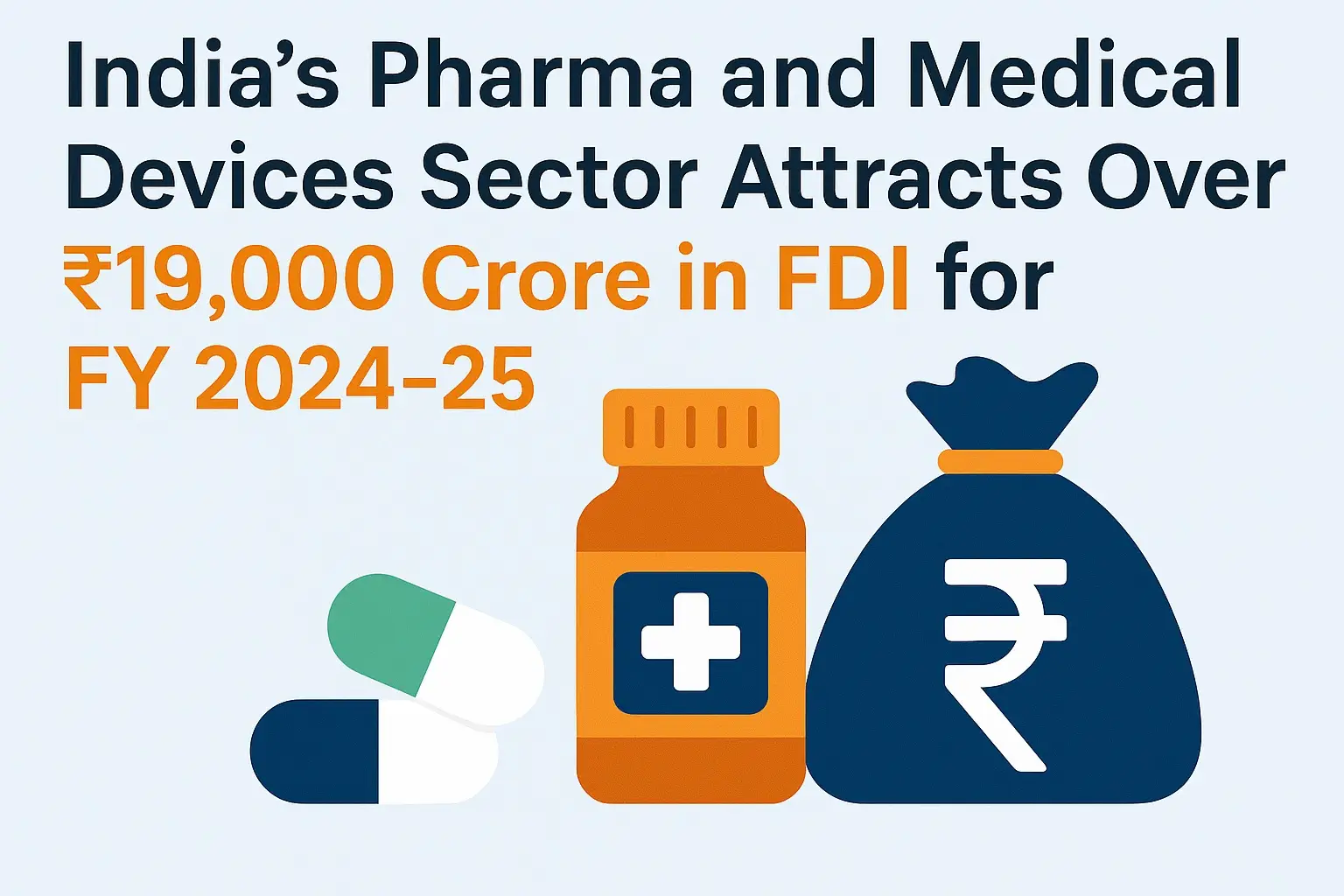
India’s pharmaceuticals and medical devices sector witnessed a significant surge in foreign direct investment (FDI), recording an inflow of ₹11,888 crore between April and December of the financial year ending March 31, 2025. Additionally, 13 FDI proposals worth ₹7,246.40 crore for brownfield projects received approval during 2024-25, taking the total FDI tally to an impressive ₹19,134.4 crore, as per data from the Department of Pharmaceuticals.
The government’s Production Linked Incentive (PLI) Scheme has emerged as a game-changer, playing a pivotal role in enhancing domestic manufacturing, attracting large-scale investments, reducing dependency on imports, and boosting exports, according to an official release issued on Sunday.
One of the standout successes of the PLI scheme has been its ability to exceed initial investment targets. Against a committed investment of ₹3,938.57 crore, actual investments had already crossed ₹4,253.92 crore by December 2024.
Under the PLI Scheme for Bulk Drugs, 48 projects were sanctioned, of which 34 have already been commissioned for the production of 25 key bulk drugs as of December 2024.
Highlight Projects Under the PLI Scheme for Bulk Drugs:

- Penicillin G Project in Kakinada, Andhra Pradesh, with an investment of ₹1,910 crore, is expected to replace imports worth ₹2,700 crore annually.

- Clavulanic Acid Project in Nalagarh, Himachal Pradesh, is progressing with an investment of ₹450 crore and projected import substitution of ₹600 crore per annum.
The broader PLI Scheme for Pharmaceuticals was greenlit by the Union Cabinet on February 24, 2021, with a financial outlay of ₹15,000 crore. Spanning FY 2022-23 to FY 2027-28, it provides financial incentives to 55 selected companies for manufacturing targeted high-value pharmaceutical products across three categories over six years. These include patented and off-patent drugs, biopharmaceuticals, complex generics, anti-cancer drugs, and treatments for autoimmune diseases.
This initiative aims to curb reliance on imports of Key Starting Materials (KSMs), Drug Intermediates (DIs), and Active Pharmaceutical Ingredients (APIs), thereby fortifying India’s manufacturing ecosystem. It also encourages domestic innovation and enhances the country’s global competitiveness.
The PLI Scheme for Medical Devices, launched to promote local manufacturing of advanced medical equipment, also aims to cut down import dependency. With a total financial outlay of ₹3,420 crore, the scheme offers incentives at 5% of the incremental sales for eligible manufacturers producing in critical segments such as radiology, imaging, cancer treatment, and implants. This scheme spans from FY 2020-21 to FY 2027-28.
India’s pharmaceutical industry continues to assert its global leadership by producing affordable, high-quality medicines. Known for its strength in branded generics and competitive pricing, the industry is underpinned by a strong foundation of homegrown brands, serving both domestic and international markets effectively.
